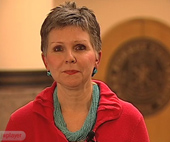Admissions Q & A

Martha Allman, Director of Admissions, Wake Forest University, answers questions regarding the new admissions policy which makes the SAT optional
How have things changed since Wake Forest decided to make the SAT optional?
Our admissions process has always been holistic, but the test-optional decision has empowered our admissions committee to be more individualized and deliberate about our decisions. Too often, standardized test scores can be used unfairly in admissions as a “crutch” in the evaluation process or a tie-breaker in otherwise close decisions. Now, we have information on applicants gleaned not only from the high school record, but also from interviews and additional written responses. This helps us to assess each applicant’s fit for Wake Forest on a much broader basis.
We have been delighted by the response from high-achieving high school students who are drawn philosophically to an institution which publicly declares that the value of the whole person and his or her achievements are more significant than a single test score.
How are you able to attract high-quality students without the SAT?
Accomplished high school students are attracted to academic excellence and energy on a college campus, and a test-optional policy in no way undermines that. On the contrary, we have found that our strongest applicants are attracted by the idea that we are assessing merit in a broader sense, which emphasizes intellectual curiosity, creativity and diversity of viewpoint.
You are now using interviews as part of the evaluation process. How is that useful?
By utilizing on-campus interviews, webcam virtual interviews through Skype, and a timed, online written interview, we are able to add an important personal and “unrehearsed” component to our process. The interview adds dimension to the application and allows us to get to know students “beyond the numbers” and beyond written essays that may have been edited and polished many times. This year, roughly 80 percent of our applicants completed one of the three interview options, and next year we hope the numbers will increase.
Where do you go from here? Are you going to continue the test-optional policy?
We intend to carefully monitor the results of our test-optional policy in the coming years, but for now, we are very pleased with the results of our decision. We have currently admitted the most talented and diverse class in Wake Forest’s history. We feel confident that our decision will not only enhance the Wake Forest community by attracting a richly diverse and talented student body, but it will also send an important message concerning the use of standardized tests in admissions.
How were your applicant numbers this year?
Applications for the freshman class increased 16 percent this year. We have experienced a 50 percent increase in the past two years. Applications from students of color increased 46 percent, African American applicants, 70 percent, North Carolina applicants 52 percent, and applications from international students increased 36 percent.
Was the SAT–optional decision designed to increase diversity on your campus?
Increasing diversity, broadly defined, is an important goal for Wake Forest. By making standardized tests optional, we are attracting bright students from all backgrounds who see these tests as an inadequate representation of their abilities.
Do you think you will see your average SAT score go down over time?
We don’t know. We do however expect our admissions process to become increasingly more selective as we increase emphasis on high school curriculum, classroom performance, creativity, motivation and other measures of accomplishment. We also hope that our decision will trigger more national discussion on the use of standardized testing. In light of recent research, the idea that the stature of a university should be defined by its average SAT score is worthy of examination.
Has the admissions process been difficult to manage this year?
Difficult, yes, but more rewarding, absolutely! Providing personal interviews for applicants requires a tremendous amount of staff time and energy, and assessing applicants without standardized tests has required more time and research from our admissions committee. Our process has been more labor-intensive and has required more discussion and deliberation, but we are more confident in our decisions than ever. We believe that our personal attention and investment in each applicant will result in a class that enriches and enlivens the Wake Forest community.
How do you think the decision to make the SAT optional affects parents, teachers and guidance counselors?
I think in many ways it humanizes the murky, frightening admissions process and makes it seem more fair. The interview gives the student a personal connection with a real admissions officer. In addition, the test-optional policy removes a barrier for many students who have compiled superb academic records and have myriad talents, but who are discouraged from applying to selective colleges because of a single standardized test score.
